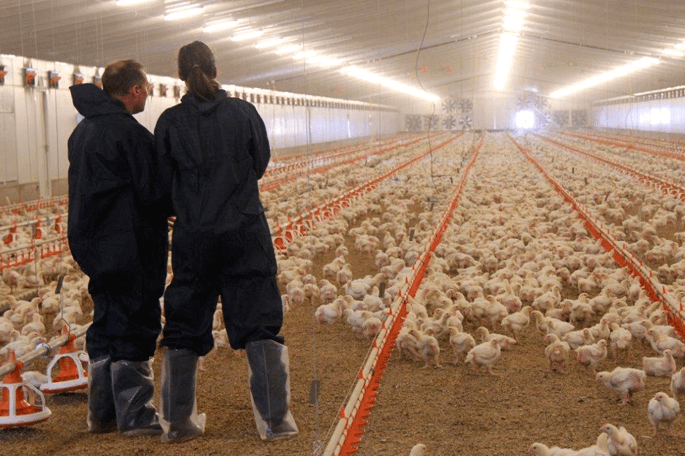INDUSTRY ISSUES
Animal Health & Welfare
Animal welfare refers to the state of an animal’s body and mind and the extent to which its needs are satisfied. The treatment that an animal receives is described by terms such as animal care, animal husbandry and humane treatment. Animal health and welfare is a serious concern for poultry meat growers – a healthy and happy bird means good even growth and resistance to disease .
With many strategies in place to reduce the incidence of illness in chicken flocks it means outbreaks of disease are not common. The emphasis in flock health programs is on prevention rather than treatment, which is why vaccination, farm hygiene and good biosecurity are the most important strategies employed to keep Australian poultry flocks healthy.
Poultry diseases caused by viruses can cause devastating damage to a poultry industry. Viruses can be very hard to treat. Industry takes the position of prevention is better than cure and comprehensive vaccination programs are undertaken.
The conditions under which meat chickens are housed and the ways in which they are managed during their growing, transportation and slaughter are outlined in Standards and Guidelines designed to safeguard their welfare. The industry has developed a model animal welfare audit program which covers hatchery, breeder rearing, breeder laying, growing, and the pick-up, transport and processing sectors.

High standards of bird welfare and high levels of flock performance and economic performance go hand-in-hand. It makes good economic sense to provide and maintain an environment that's good for the bird.

